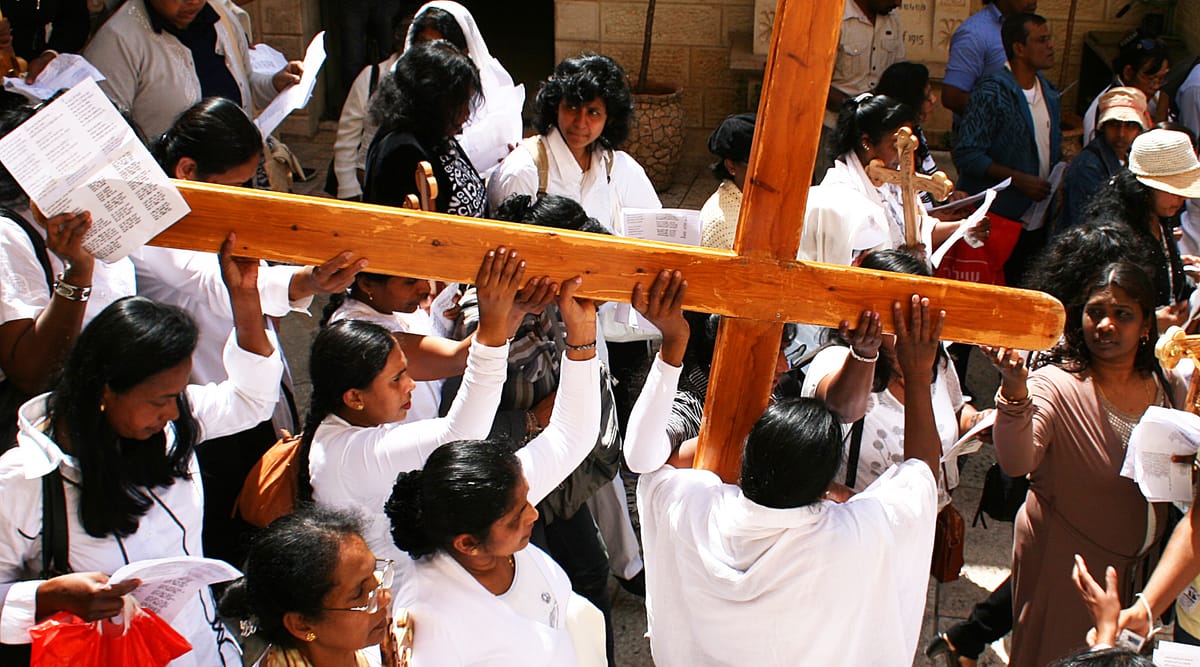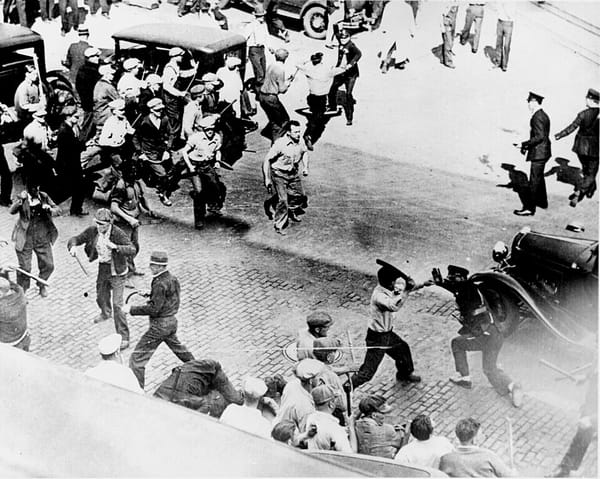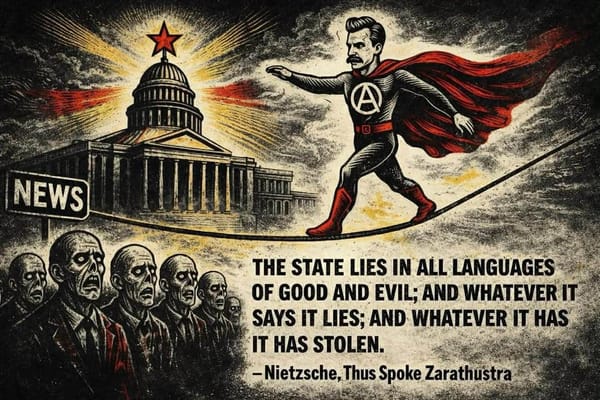Religion: An Anarchist View

Religion is among the oldest and most important social phenomena. It motivates human beings to take care of each other and do grievous harm to one another. Religion is the centerpiece of the worldviews of most people who have ever lived. Religion is thus embedded in the social structures of modern society.
Anarchists, having a critique of modern society, have a critique of religion. There are many academic definitions of religion, but the definition this article will use is as follows: Religion is a theory and practice which normatively relates human beings to the supernatural. So, religion is a way of explaining the world and acting on such explanations designed to organize human life so that it is in good relationship to forces beyond the natural world. The natural world, or nature is the domain explained by scientific theories such as biological evolution, the theory of gravity, and the standard model of particle physics.
Thus adherents of religion claim and believe that some aspects of the world, usually the most important, are best explained by a reality that isn't found in scientific theories. In fact, according to the religious, this reality governs natural reality. Forces such as God, angels, demons, souls, and karma, dictate many things that happen in the natural world and human history. Some of these forces such as God are often thought to be the source of nature and humanity and ultimately responsible for their fate.
Anarchists join Karl Marx in seeing all human affairs grounded in cooperative social production and thus all concrete ethical issues as grounded in the free association of human beings. Marx thought that this view of the human condition justified philosophical naturalism and atheism, and Anarchists have usually agreed. Philosophical naturalism is the view that there are no dimensions of reality outside scientific investigation, which entails atheism; the view that there is no supreme supernatural being such as God.
If human life is grounded in social production, then there isn't much room for it to be explained by the supernatural since social labor is ultimately grounded in natural processes. Social production is necessitated for human beings because we have a corporeal connection to nature that enjoins us to utilize our bodily faculties to intentionally transform the natural environment. Our consciousness is thus connected to nature as we solve our problems by investigating and augmenting nature. Thus, with the development of the capitalist world-system based on standardized intellectual institutions which lay the basis for industrial development the world becomes radically disenchanted.
Why, then, in modern society, where capitalism has reduced the entire world to nature, do human beings still view the world as governed by the supernatural? Karl
Marx and the Anarchist Mikhail Bakunin offered an explanation. In reducing the world to nature capitalism also reduces humanity to inert matter. Capital accumulation requires the reduction of human beings to mere inputs in the production process with no autonomy of their own. Workers have no say over the production process and profitability takes precedent even over the human needs of capitalists.
The reduction of reality to nature in the capitalist world-system thus means the death of the human spirit for the great mass of humanity. Because human beings can't help but recognize inherent value and purpose in human life, they refuse the reduction of reality to nature and take refuge in an illusory realm beyond it, one which they hope will realize a more just existence. Thus, Marx and Bakunin see that despite religion being an illusion sustained by an unjust world; it is at the same time a protest against it. No amount of atheist polemic will thus free humanity of religious feeling. The final disappearance of religion will only come about as the result of an associated mode of production in which human beings autonomously direct social labor to meet human needs.
Even if capitalist materialism is impossible theistic ethics is dually impossible. Just as capitalist production reduces human beings to raw material the social structures which obligate human beings to ethereal forces reduce human beings to spiritual puppets. The corporeal need of human beings for cooperative control of our productive lives is denied on earth to realize ethereal purposes beyond our control and understanding. Just as the west became rich with wealth plundered from the south and east heaven got rich by plundering earth. In affirming human freedom Anarchists deny ethereal power.
Despite advancing the criticism of religion Anarchists are for religious freedom and fight for and with the mass of people and thus with and for most religious people. Any religious person who is a friend of freedom is a friend of Anarchism and any atheist that is an enemy of freedom is an enemy of Anarchism. Religious disagreement is an opportunity for cooperative intellectual development, rather than exclusion and purity testing. Debate is part of freedom.
Sources
God and The State, Bakunin
Marx, Vanessa Wills
World-Systems Analysis: An Introduction, Wallerstein
Introducing Philosophy of Religion, Chad Meister
https://iep.utm.edu/naturali/





